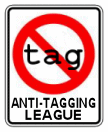Even Bloggers Get the Blues
It seems we're at the center of dozens of "epidemics" these days. They range from the social - like gun violence - to the medical - like overweight kids or diabetes. One of those epidemics is depression. Not the "my boyfriend just left me" variety, but the "gee, that bridge railing looks awfully inviting" variety. I suppose this is no surprise, we live in a demanding and dysfunctional society that contributes emotional environment issues while psycho-medicine finds it isn't quite far enough along to deal well with the physiological implications.One look no farther than my blogroll to see that many bloggers, including me, struggle with the disease - either head-on or by subconscious implication. Some battle the idea that it's really an illness and not something they can simply "deal with". Still others are working on a recovery, but aren't quite there yet. I'd like to say there is a third category - people who've been cured - but that wouldn't be wholly true. No matter how well you do in the present there's always the chance that you'll relapse at some point in the future. Mental illnesses are much like cancer in that respect. You may be able to make marked improvements through therapy or drugs. You might even wean yourself off one or both, but the depression is still there like a 2-ton elephant in the room waiting to barge in at any moment. It doesn't necessarily need a trigger, it simply needs to emerge.
Many people without the disease compare it to their own bouts of "depression". They believe, from their personal experiences, that clinical depression can be cured by a talk with a good friend, an aphorism or two, and time. For them, the old saw about time healing all wounds is true. They struggle to understand why a person with clinical depression simply can't decide to "not let things get them down". Sometimes, the less sensitive might even suggest there's something cowardly or lazy about the sufferer. After all, non-sufferers can cure themselves of their garden-variety depression, so they intuit that someone who can't merely isn't trying hard enough.
While sufferers are happy to have support and encouragement, many blanch when given advice about how nutrition, herbal remedies, yoga, or some other home remedy "cured" Aunt Edna of her depression. These things may indeed help, but the probability they'll turn a sufferer's life around, just like your Aunt Edna's, is remote. To us, they are just more examples of how little anyone really knows about the disease. While we try to take the well-meaning advice in stride, many of us find it insulting and unbearable in the same way that a cancer victim feels when advised that eating more nutritious meals will miraculously drive their cancer into remission.
Someone with a severe case of the disease can barely move. They have no energy to go to work or enjoy a play or talk to their family. Their every waking moment - and there are an astonishing number, since severe insomnia is a common symptom - is filled with a dread of the world that is unquenchable. Oddly, other people experience a complete emotional emptiness. They don't feel bad or good, they simply don't feel at all. This symptom - one that I still occasionally suffer despite regular talk therapy and drugs - leaves you an empty emotional shell. You remain completely functional - still going to work and cooking dinner for example - but you experience an emotional flatline. It's a zombie-like existence where you are equally unable to feel the joy of a child's first words or the devastation of the death of a close friend. There are no tears and no smiles. There is only endless static. Despite the number of humorous posts I write, you'd be surprised at how unfunny I feel when I write some of them. Yet, many of us have learned to cope rather too well. We can mask the illness so it seems as if it isn't even there. That makes it just that much harder for friends and family to completely grasp the depths of out illness, further isolating us at the moment we may need their support.
Extremely severe cases, like the one experienced by author William Styron, can even deprive the victim of speech or anything much beyond rudimentary memory. As he describes it, it sounds much like a person in a coma, without the benefit of a deadened mind. You're awake for the whole terrifying thing, yet just as unable to function.
I'm not sure why I'm telling you all of this. I'm not seeking attention, or support, or even encouragement. My way of coping with the disease is to simply keep working at what I know works best - therapy and medication. I suppose the real reason to tell you is that you know and can appreciate the complexity of the disease the next time one of your blogging buddies writes about it or struggles to come to grips with it.
Other than that, just keep good thoughts for us as we keep on keeping on. It's all we ask.
Tech Tags: depression memoir omnipotent+poobah
Truth Told by Omnipotent Poobah, Friday, November 03, 2006








